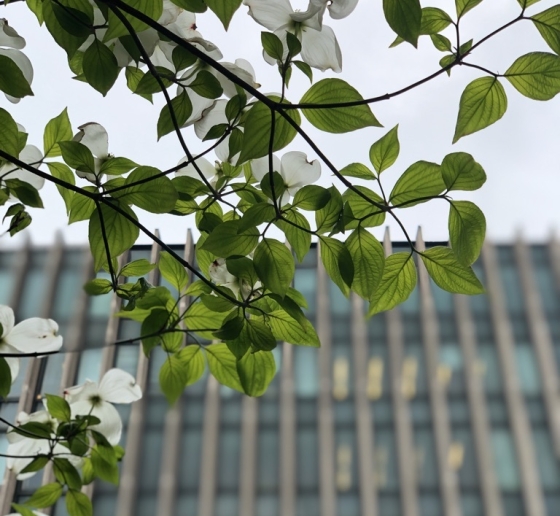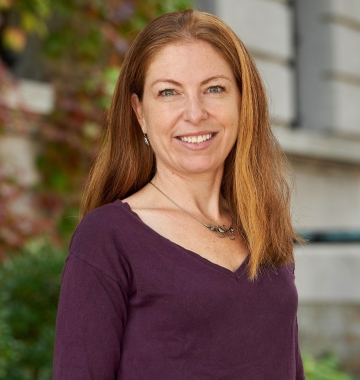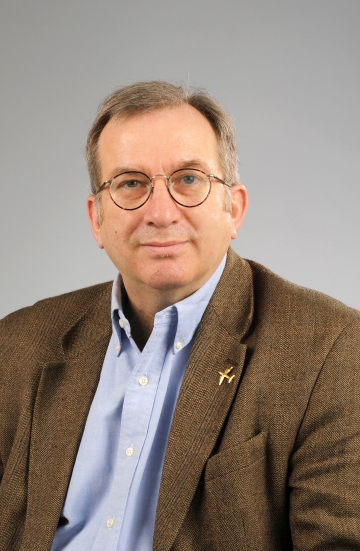Academic Focus: Columbia Center on Sustainable Investment
The center focuses on research, training, and advocacy to push global financial investment toward sustainable development.

Among Columbia Law School’s centers and programs, the Columbia Center on Sustainable Investment (CCSI) is notable for its size alone: The center has 21 staff members, with 15 senior fellows, four postgraduate research fellows, and at least a dozen graduate student researchers each semester (including Columbia Law students), making it one of the Law School’s largest. But what also makes CCSI distinctive, says Director Lisa Sachs ’08, is its focus on practical and policy solutions.
Sachs calls CCSI a “think and do tank” where the research is “driven by partnerships and practical problems. We are trying to have real impact and influence in the world,” says Sachs.
“What we do at the center touches upon all areas of expertise,” says Petros C. Mavroidis, Edwin B. Parker Professor of Foreign & Comparative Law and the center’s faculty adviser.
Founded in 2008 and now a joint venture between the Law School and Columbia Climate School, CCSI researches and advocates for solutions for inclusive and environmentally sustainable economic development. Its primary aim is to examine the role of investment and finance in achieving sustainable development, particularly in economic sectors that have an outsized impact on the climate and human well-being, such as agriculture, mining, and energy production. Since 2015, the center has aligned its mission with the sustainable development goals adopted by the United Nations.

“To solve these sustainable development challenges will require a total reorientation of financial flows. We need trillions of dollars of investments to change our energy systems, to transition high-emitting sectors, to build infrastructure in developing countries, to invest in technologies,” Sachs says. “The challenge is to adopt laws, policies, and practices that will scale the investments that are needed in just, equitable, and environmentally sustainable ways.”
The center’s annual budget comes from approximately 30 sponsors and funds research reports, executive trainings, technical advisory projects, and workshops.
The center’s regular trainings for government officials and other events shifted online during the COVID-19 pandemic, which “proved to be more of a blessing than a curse,” Mavroidis says. “Suddenly, instead of 50 people in the room, we had 1,000 people following the webinar.” Panel discussions and speaker series cover topics such as international investment law and scaling up renewable energy

CCSI has also partnered with the Sabin Center for Climate Change Law to create the Climate Law and Finance Initiative, which will support research on issues including financing the transition to renewable energy, how government regulation can speed that transition, and metrics for assessing financial institutions’ progress on climate goals.
“We don’t represent any special interests,” Sachs says. “Our job is to learn, to try to explain how things should work better on the basis of what we’ve learned, to support engaged dialogue, and boost technical capacity.”
In 2023, the center published a report on the lack of progress by financial institutions in combating global warming through investment, calling financial industry practices “woefully misaligned” with climate-change goals: Banks need to invest four times as much in clean energy as in fossil fuels, but they are currently investing at a ratio of less than 1:1.
The report also highlights the way that popular talking points like ESG investing—or investing to support environmental, social, and governance goals—are actually distractions from substantive ways to address problems. Even within the financial institutions, says Sachs, those who are supposed to focus on addressing climate change are discouraged that the industry is engaging in much more talk than action. “There is a discomfort and a frustration that a lot of the rhetoric is actually not meaningful,” she says.
The center prides itself on challenging established narratives—like the promise of ESG investing and the effectiveness of investment treaties—to bring about change, Sachs says. “When there are such entrenched interests throughout our economy of people who are benefiting from current structures, we need to think objectively, critically, analytically, and from a view of problem-solving.”
The financial industry’s minimal progress toward investing for a sustainable future is partly due to a lack of government policy on decarbonization, Sachs says. Slowing global warming “is a law-and-policy challenge. It is going to be solved by policy frameworks and regulation and international agreements. We need the lawyers to help think through their contents and how to negotiate those.”
To that end, Columbia Law J.D. and LL.M. students regularly work as interns alongside researchers and practitioners on center projects. Mavroidis says four or five of his students studying international trade annually work at the center and then go on to jobs in trade and policy organizations or academia.
While many issues in sustainable development are as vexing now as when the center was founded in 2008, the issue of climate change has moved front and center in the past 16 years. “It’s a totally different conversation now: the awareness, how mainstream it is, even among our law students, and how involved the public is,” Sachs says. A recent report from the center, for example, focused on minimizing, reusing, and ultimately eliminating waste at mining operations. “That’s an interesting and important conversation that we just weren’t having five or 10 years ago,” says Sachs. Financial institutions “are much more engaged now in actually thinking through solutions,” she adds. “The level of awareness and how much the research and dialogue have advanced is absolutely notable.” A research project launched in December 2023, supported by investment management firm Man Group, will investigate how climate impact is targeted, defined, and measured in fixed-income and equity portfolios.
“Every year, what we are working on looks different,” Sachs says. “That’s a reflection of both the progress of the field and our ability to respond to the evolving and dynamic challenges and solutions.”
CCSI has moved to the mainstream of conversations about a sustainable future, Mavroidis says: “There is hardly any big conference where one of us [affiliated with the center] is not invited. This is an indicator that we matter as a center. They refer to our publications in the literature; they involve us in their projects. People notice what we do.”
